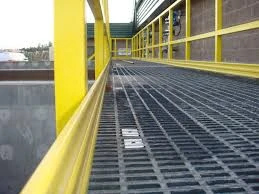
-
 Afrikaans
Afrikaans -
 Albanian
Albanian -
 Amharic
Amharic -
 Arabic
Arabic -
 Armenian
Armenian -
 Azerbaijani
Azerbaijani -
 Basque
Basque -
 Belarusian
Belarusian -
 Bengali
Bengali -
 Bosnian
Bosnian -
 Bulgarian
Bulgarian -
 Catalan
Catalan -
 Cebuano
Cebuano -
 China
China -
 China (Taiwan)
China (Taiwan) -
 Corsican
Corsican -
 Croatian
Croatian -
 Czech
Czech -
 Danish
Danish -
 Dutch
Dutch -
 English
English -
 Esperanto
Esperanto -
 Estonian
Estonian -
 Finnish
Finnish -
 French
French -
 Frisian
Frisian -
 Galician
Galician -
 Georgian
Georgian -
 German
German -
 Greek
Greek -
 Gujarati
Gujarati -
 Haitian Creole
Haitian Creole -
 hausa
hausa -
 hawaiian
hawaiian -
 Hebrew
Hebrew -
 Hindi
Hindi -
 Miao
Miao -
 Hungarian
Hungarian -
 Icelandic
Icelandic -
 igbo
igbo -
 Indonesian
Indonesian -
 irish
irish -
 Italian
Italian -
 Japanese
Japanese -
 Javanese
Javanese -
 Kannada
Kannada -
 kazakh
kazakh -
 Khmer
Khmer -
 Rwandese
Rwandese -
 Korean
Korean -
 Kurdish
Kurdish -
 Kyrgyz
Kyrgyz -
 Lao
Lao -
 Latin
Latin -
 Latvian
Latvian -
 Lithuanian
Lithuanian -
 Luxembourgish
Luxembourgish -
 Macedonian
Macedonian -
 Malgashi
Malgashi -
 Malay
Malay -
 Malayalam
Malayalam -
 Maltese
Maltese -
 Maori
Maori -
 Marathi
Marathi -
 Mongolian
Mongolian -
 Myanmar
Myanmar -
 Nepali
Nepali -
 Norwegian
Norwegian -
 Norwegian
Norwegian -
 Occitan
Occitan -
 Pashto
Pashto -
 Persian
Persian -
 Polish
Polish -
 Portuguese
Portuguese -
 Punjabi
Punjabi -
 Romanian
Romanian -
 Russian
Russian -
 Samoan
Samoan -
 Scottish Gaelic
Scottish Gaelic -
 Serbian
Serbian -
 Sesotho
Sesotho -
 Shona
Shona -
 Sindhi
Sindhi -
 Sinhala
Sinhala -
 Slovak
Slovak -
 Slovenian
Slovenian -
 Somali
Somali -
 Spanish
Spanish -
 Sundanese
Sundanese -
 Swahili
Swahili -
 Swedish
Swedish -
 Tagalog
Tagalog -
 Tajik
Tajik -
 Tamil
Tamil -
 Tatar
Tatar -
 Telugu
Telugu -
 Thai
Thai -
 Turkish
Turkish -
 Turkmen
Turkmen -
 Ukrainian
Ukrainian -
 Urdu
Urdu -
 Uighur
Uighur -
 Uzbek
Uzbek -
 Vietnamese
Vietnamese -
 Welsh
Welsh -
 Bantu
Bantu -
 Yiddish
Yiddish -
 Yoruba
Yoruba -
 Zulu
Zulu
frp transport tank
Understanding FRP Transport Tanks A Comprehensive Overview
FRP (Fiber Reinforced Plastic) transport tanks have gained significant popularity in various industries due to their unique properties and advantages. These tanks are constructed using composite materials that combine a plastic matrix (typically polyester or vinylester resin) reinforced with glass or other fibers. This combination results in a lightweight yet highly durable product that is ideal for handling various liquids and chemicals.
Advantages of FRP Transport Tanks
1. Corrosion Resistance One of the most significant benefits of FRP transport tanks is their exceptional resistance to corrosion. Unlike traditional metal tanks, which can rust or corrode when exposed to certain chemicals, FRP tanks maintain their integrity even in harsh environments. This property is particularly crucial for industries dealing with aggressive chemicals, such as oil and gas, wastewater treatment, and chemical manufacturing.
2. Lightweight FRP tanks are considerably lighter than their steel or concrete counterparts. This characteristic not only eases transportation and installation but also reduces the structural load on the foundations, making them an optimal choice for various applications.
3. Customizable Designs Manufacturers can easily tailor FRP tanks to meet specific requirements, including size, shape, and the type of chemical to be stored. This flexibility allows industries to optimize their storage solutions based on their unique operational needs.
4. Thermal Insulation FRP transport tanks exhibit excellent thermal insulation properties. This feature is particularly beneficial for storing temperature-sensitive materials, helping to maintain product integrity and stability.
5. Cost-Effectiveness Although the upfront cost of FRP tanks may be higher than traditional materials, their longevity, low maintenance, and resistance to corrosion often translate into lower total lifecycle costs.
frp transport tank

Applications of FRP Transport Tanks
The utilization of FRP transport tanks spans a wide array of industries
- Chemical Industry FRP tanks are ideal for storing a variety of chemicals, including acids, caustics, and solvents, due to their chemical resistance. - Water Treatment In water treatment facilities, FRP tanks are commonly used for storing and transporting water, chemicals for treatment, and sludges, thanks to their durability and resistance to biological growth. - Oil and Gas The oil and gas industry employs FRP tanks for the storage of fuels and chemicals used in exploration, refining, and transportation, taking advantage of their lightweight and corrosion-resistant properties.
- Food Industry The food industry also benefits from FRP tanks due to the stringent hygiene standards required. The smooth, non-porous surface of FRP minimizes the risk of contamination, making it suitable for storing food-grade chemicals and ingredients.
Maintenance and Safety Considerations
While FRP transport tanks are relatively low-maintenance compared to other materials, it is crucial to conduct regular inspections to ensure their integrity and safety. Common maintenance practices include checking for any signs of wear, stress cracks, or chemical damage. Additionally, it is vital to adhere to industry-specific safety regulations when handling chemicals in these tanks, ensuring proper training for personnel involved in their management.
Conclusion
FRP transport tanks represent a modern solution to the challenges posed by traditional storage containers. Their durability, lightweight nature, and resistance to corrosion make them an attractive option for various industries requiring safe and effective liquid storage. As technology continues to evolve, the applications and benefits of FRP tanks are likely to expand, providing even more robust solutions for handling a diverse range of materials. With proper maintenance and adherence to safety protocols, FRP transport tanks will continue to play a crucial role in industrial processes for years to come.









